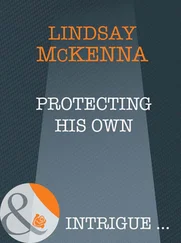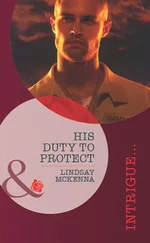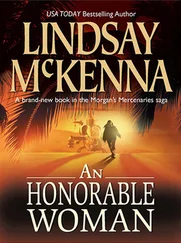1 ...8 9 10 12 13 14 ...20 Gavin bowed in respect to Jameela and offered the Islamic greeting to her as they halted about six feet from one another. Jameela whispered softly the return greeting to Gavin and to Nike, who bowed slightly, pressed her hand to heart and said, “Salaam.” She didn’t know what else they said to one another, but at one point, Jameela leaned forward and gave Nike the hijab. She made some gestures indicating she should wrap it around her head.
Nike gave her a friendly smile and put it on. Once the knotted scarf was in place, Jameela’s eyes crinkled as if she were smiling. Perhaps she was grateful to Nike for honoring their customs. Not being able to see another person’s body language or their facial expressions was highly disconcerting. Nike realized in those minutes how much she truly assessed a person through nonverbal means. Jameela remained a mystery to her.
“I speak…English…little…” Jameela said haltingly to Gavin and Nike, opening her hands as if to apologize.
Nike was delighted and grinned. She saw Gavin smile and nod.
“Where did you learn English?” Gavin asked her politely. He knew that Jameela shouldn’t be talking to him. Under the circumstances, he felt it was all right but not something to be done more than once outside her home.
“When I was little, my parents lived in Kabul. I was taught English at a Christian missionary school.” Shrugging her small shoulders beneath the burka, Jameela laughed shyly. “Coming out here, I could not practice it. So, I am very poor at speaking your language, but I will try.”
“Thank you, memsahib, ” Gavin told her quickly in Pashto. “My friend, Captain Nike Alexander—” he gestured toward her “—is here to help the women and children. Perhaps you could interpret for her? She does not know Pashto.”
Jameela nodded in deference toward Nike. “Of course, Captain, I would be happy to. Please, apologize to her that I speak broken English?”
Gavin nodded. “Of course, memsahib, but you speak English very well. I know Captain Alexander will be grateful for your English and translation help. Thank you.”
Jameela bowed her head slightly, her long hands clasped in front of her. Nike could have sworn the Afghan woman blushed, but it was hard to tell with the burka like a wall between them.
“You are the first Americans to come here,” Jameela told Gavin in a softened tone. “There are Sufi twin brother and sister medical doctors, Reza and Sahar Khan, who visit us once every six months. The Sufis are heart-centered and they help us greatly. The Khan twins travel from the northern border of Afghanistan and follow it all the way to the south helping the villages along the way. Then, they turn around in their Jeep and come back north to do it all over again. We bless them. The Sufis are a branch of Islam who are dedicated to compassionate love toward all, no matter what their beliefs.”
“Yes, I’m aware of the Sufis’ nature,” Gavin told her in Pashto. “I’m also aware that the Taliban hate them. The Sufis practice peace at all costs and the Taliban has been known to kill them.”
Jameela nodded sadly. “That is so, Captain Jackson. But Doctors Reza and Sahar Khan are welcomed by all our villages along the border, regardless. We greet them and bring them into our villages on two white horses. We place flower wreaths around their necks and sing their praises. That is our custom of honoring their courage to care for us regardless of the personal danger they place themselves in. They have saved many of our people over the years.”
“I’ve heard the Khans mentioned by other villagers,” Gavin said. “I hope one day to meet them. They’re heroic people and give the Sufis a good name around the world for their courage and generosity.”
Jameela hesitated and then said, “My husband is afraid Americans coming here will invite another Taliban attack upon us. Surely you know this?”
Nodding, Gavin said gently, “I understand that. We hope to win his trust over time, memsahib. And my team will be in your valley here to protect you from the Taliban. Our mission is to show that the American people are generous and care, especially for those who are sick.”
Jameela looked toward the sky. “Allah be praised, Captain. You have no idea the prayers I have said daily to Him, asking for more help. If you stay in our valley then the Taliban won’t attack us. Our Sufi brother and sister constantly travel. We understand they can only visit us twice a year.” She gestured gracefully toward the village. “Captain Alexander, you will come with me, and I will put you to work. Captain Jackson, you may join your men.”
“Of course,” Gavin said, and he winked over at Nike. “I’ll catch up with you later. And I’ll have Sergeant Robles alerted to your requests. Just relax. It will all work out.”
Nike wasn’t so sure, but said nothing. She didn’t want this humanitarian mission scuttled because of her lack of medical knowledge. As she walked with Jameela, she said, “Are your duties the same as your husband’s in running this village?” Nike knew little of the Afghan culture and didn’t want to make a gaffe. Better to ask than to assume.
Jameela nodded. “My duty first is to my husband and our family. After that, I am looked upon to provide leadership to the women of the village in all matters that concern us.”
“I see,” Nike said. She suddenly had a humorous thought that couldn’t be shared with Jameela. Wearing a bright red scarf, a dark green flight suit and a pistol strapped to her waist, she must look quite a sight! The women of the BJS would laugh until it hurt if they could see her in her new fashion garb. Still, Nike wanted to fit in, and she would allow the course of the day to unfold and teach her. Often, prejudices and misunderstandings from one country or culture to another caused tension and she would not want to create such problems.
As Nike followed Jameela down the muddy, rutted street, she was struck by the young children playing barefoot on such a cold April morning. The children’s clothes were threadbare with many patches sewn in the fabric. They shouted and danced. Their gazes, however, were inquisitive and they stared openly at Nike. What an odd combination she wore—a man’s trousers with the prescribed headdress of a Muslim woman. Fired with curiosity, the group followed them down the middle of the wide street where mud and stone homes sat close to one another.
As Nike smiled at the children, she regretted not knowing Pashto. Their eyes were button-bright and shining. Little girls and boys played with one another just as they would in the States or in her homeland of Greece. But then, as she glanced farther up the street, her heart saddened. A little girl of about six years old stood on crutches near a large stone home. The child had only one leg. Nike remembered that damnable land mines covered this country. Most of them had been sown by Russians, but of late, it had been the Taliban, too. Had this child stepped on one? Nike’s heart contracted. There was no doctor here to help her. No painkillers. No antibiotics. How had she survived?
“Jameela? That little girl over there? Who is she?”
“My youngest daughter, Atefa. Why do you ask?”
Gulping, Nike hoped she hadn’t made a fatal mistake by asking. “I…uh…she’s missing one leg. Did she step on a land mine?”
“Yes, as a four-year-old.” Jameela’s voice lowered with anguish as she pointed outside the village and to the east. “Afghan national soldiers laid land mines everywhere outside our village two years ago. They wanted to stop the Taliban from coming through our valley.” Choked anger was evident in her quiet tone.
“How did Atefa ever survive such a terrible injury?” Nike asked softly.
Читать дальше












